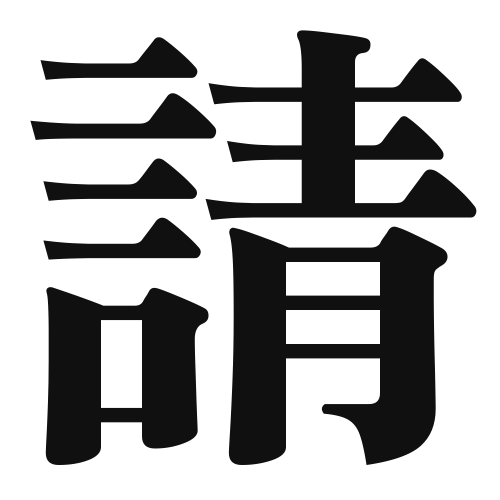1. Overview of Meaning
The kanji “請” (seikyu) generally means “to request” or “to ask for.” It conveys the idea of making a formal or polite request for something.
2. Formation and Radical
The kanji “請” is a compound character (会意文字) that combines elements to convey its meaning. It consists of the radical 言 (word) on the left, which relates to speech or communication, and the character 青 (blue/green) on the right, which can imply clarity or purity in the context of requests.
The radical 言 is significant as it emphasizes the verbal aspect of making a request.
3. Examples of Usage
Common words and phrases that include “請” are:
- 請求 (seikyuu) – request, claim
- 請願 (seigen) – petition
Example sentences in daily conversation:
- 「この書類を請求できますか?」 (Can I request this document?)
- 「彼に請願書を提出しました。」 (I submitted a petition to him.)
4. Synonyms and Antonyms
Similar kanji with related meanings include:
- 要望 (youbou) – request, demand (more informal)
- 依頼 (irai) – request, commission (often implies a favor)
Antonyms include:
- 拒否 (kyohi) – refusal
5. Cultural and Historical Background
The kanji “請” is often used in formal contexts in Japanese culture, such as in business communications and legal documents. It reflects the importance of politeness and respect in Japanese society when making requests.
Proverbs and idiomatic expressions that relate to “請” include:
- 「請うは一時の恥、拒むは一生の恥。」 (To ask is a moment’s shame, to refuse is a lifetime’s shame.) – This emphasizes the value of making requests rather than missing opportunities.
